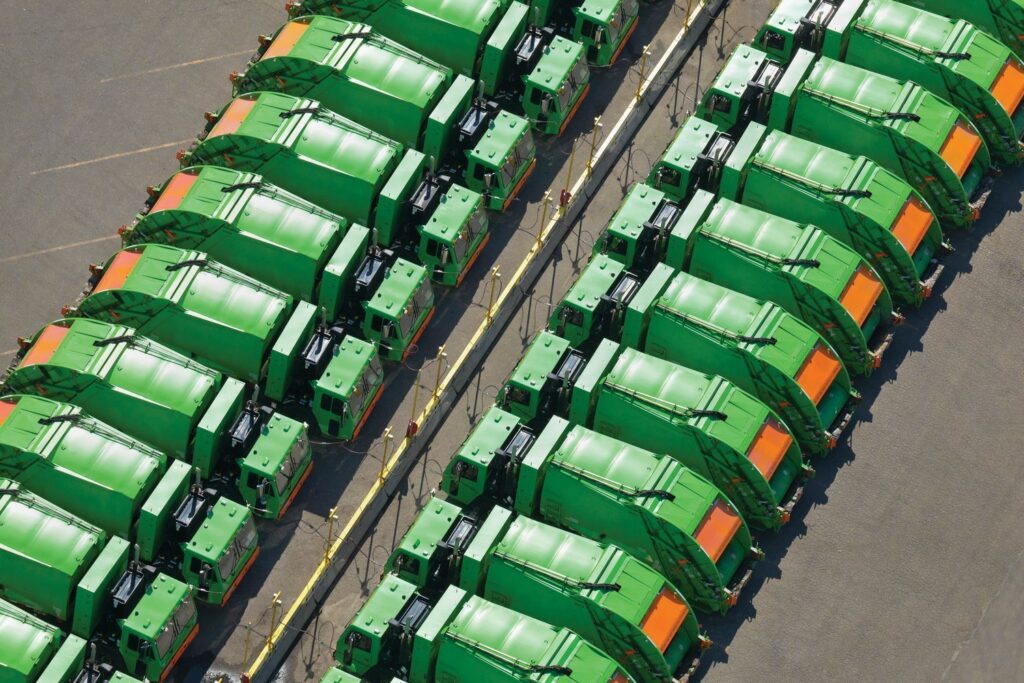Ontario pilot project to fuel waste vehicles with RNG
Ontario waste haulers will soon be testing trucks that run on renewable natural gas (RNG) under a pilot project run by Enbridge Gas and the Ontario Waste Management Association (OWMA).
The fuel itself is generated from waste and leverages existing natural gas infrastructure. The end result can even lead to carbon-negative emissions.

Ontario has about 3,650 waste collection and haulage vehicles that collectively consume an estimated 130 million liters of diesel per year. Just shifting Ontario’s existing gas-fueled refuse vehicles to RNG could help fleets eliminate 56,000 tonnes of annual greenhouse gas emissions, Enbridge said in a press release.
While a precise number of trucks has yet to be established, the pilot project is expected to help offset the related price premiums for a couple of dozen vehicles, said Mike Chopowick, CEO of the OWMA, whose members manage 85% of the province’s waste.
“The purpose is to demonstrate that this works from an environmental perspective and a cost perspective,” he told trucknews.com. The pilot project itself will run over 2022 and 2023, and will most likely focus on residential collection vehicles.
Ontario currently has 600 gaseous-fueled refuse vehicles that reduce traditional combustion-related emissions by 90%, said Bruce Winchester, executive director of the Canadian Natural Gas Vehicle Alliance (CNGVA).
“In addition, these vehicles are also reducing greenhouse gas emissions by 10,000 tonnes per year – equivalent to removing 2,000 cars from Ontario’s roads. This industry is already leading in emissions reductions and is poised to support further emissions reductions across the commercial transportation sector,” he said.
“Renewable natural gas is now playing a role in Ontario’s shift to lower–carbon, sustainable energy solutions. It is an important example of the investments Enbridge Gas is making across multiple markets to green the natural gas grid, while continuing to meet the demand for safe, reliable and affordable energy,” said Malini Giridhar, Enbridge vice-president – business development and regulatory, in a related press release.
“Initiatives like this one – decarbonizing waste collection trucks – will play an important role in our efforts to reduce Ontario’s greenhouse gas emissions and reach our 2030 targets,” added David Piccini, Ontario minister of the environment, conservation and parks.
Ontario has a 2030 target to reduce emissions to levels that are 30% lower than those seen in 2005.
Have your say
This is a moderated forum. Comments will no longer be published unless they are accompanied by a first and last name and a verifiable email address. (Today's Trucking will not publish or share the email address.) Profane language and content deemed to be libelous, racist, or threatening in nature will not be published under any circumstances.